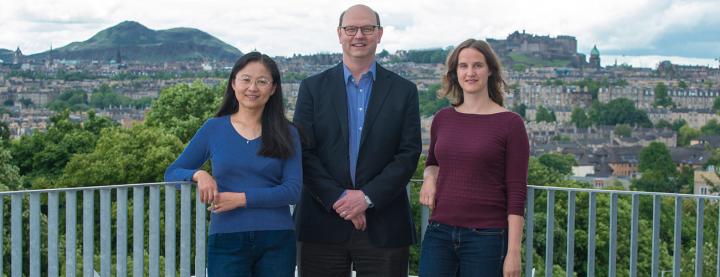Mark Arends
Colorectal Cancer Pathology

Research in a Nutshell
Colorectal cancer formation mostly involves cellular change from normal bowel mucosa to the benign precursor (adenoma) to carcinoma. The transitions are associated with characteristic genetic changes, such as alterations to APC, the DNA mismatch repair genes MLH1 & MSH2, KRAS and TP53. These genes also influence the regulation of proliferation, differentiation and apoptosis. This process is often associated with chromosomal instability, which we studied (with spectral karyotyping and array-comparative genomic hybridisation), to show loss or gain of gene copy number in colorectal tumours and using this approach we identified BRUNOL4, PARK2 and IRS2 as new genes in colorectal cancer development and progression.
To study the effects of mutated KRAS on intestinal tumour formation we used models with inherited APC mutation or deleted mismatch repair gene MSH2 and showed KRAS-mediated acceleration of intestinal tumourigenesis. Models of intestinal tumourigenesis were used to determine contributions to tumour formation by RASSF1A, GNAS, PARK2 and validation of SLX4/FANCP as a new Fanconi Anaemia gene. The Fanconi DNA repair pathway, known to repair DNA interstrand cross-links, was critically important in repairing DNA damage induced by alcohol/acetaldehyde and formaldehyde. These and other models continue to be used to identify and investigate other potentially novel intestinal cancer-related genes.

People |
|
| Mark Arends |
Principal Investigator and Professor of Pathology |
| Guia Cerretelli | PhD student |
Contact
Collaborations
- Dr David Adams, Sanger Institute Cambridge
- Dr Ketan J Patel, MRC Laboratory of Molecular Biology Cambridge
- Dr Louise van der Weyden, Sanger Institute Cambridge
- Dr Ash Ibrahim, University of Cambridge
- Professor Malcolm Dunlop, University of Edinburgh
- Dr Susan Farrington, University of Edinburgh
- Dr Farhat Din, University of Edinburgh
- Dr Lesley Stark, University of Edinburgh
- Professor Ted Hupp, University of Edinburgh
- Professor Philippa Saunders, University of Edinburgh
- Dr George Poulogiannis, Harvard University and the Institute of Cancer Research London
- Professor Ian Tomlinson, University of Oxford
- Professor Gordon Dougan, Sanger Institute Cambridge
- Centre for Comparative Pathology, University of Edinburgh
- MRC Molecular Pathology Node, Edinburgh-StAndrews
- Dr Ian Frayling, University of Cardiff
Partners and Funders
- University of Edinburgh
- MRC (Molecular Pathology Node)
- Wellcome Trust (ISSF & ISSF2)
- Pathological Society
- Medical Research Council
- Chan-Zuckerberg Initiative
Scientific Themes
Molecular Pathology Node, Comparative pathology, Division of Pathology, Pathology & Phenomics Laboratory, Colorectal cancer, Endometrial cancer, Adenoma, Carcinoma, Cancer genes, Cancer Genomic Sequencing, Metastasis, Melanoma, Cancer Models, Digital Pathology, IBD-Colorectal cancer
Technology Expertise
Image analysis (QuPath, Definiens, ImageJ), Slide-scanning (2 Hamamatsu Nanozoomer slidescanners), Genomic, expression and model phenotype data: Whole genome sequencing, Whole Exome sequencing, array-CGH, RNA-sequencing, expression arrays, immunohistochemistry (IHC – Bond III) and in-situ hybridisation (ISH – Bond RXM) platforms, Comparative pathology analysis, Tissue MicroArray, Hypoxystation, Faxitron X-ray Irradiation, ECMC, Tissue Governance tissue processing facilities

